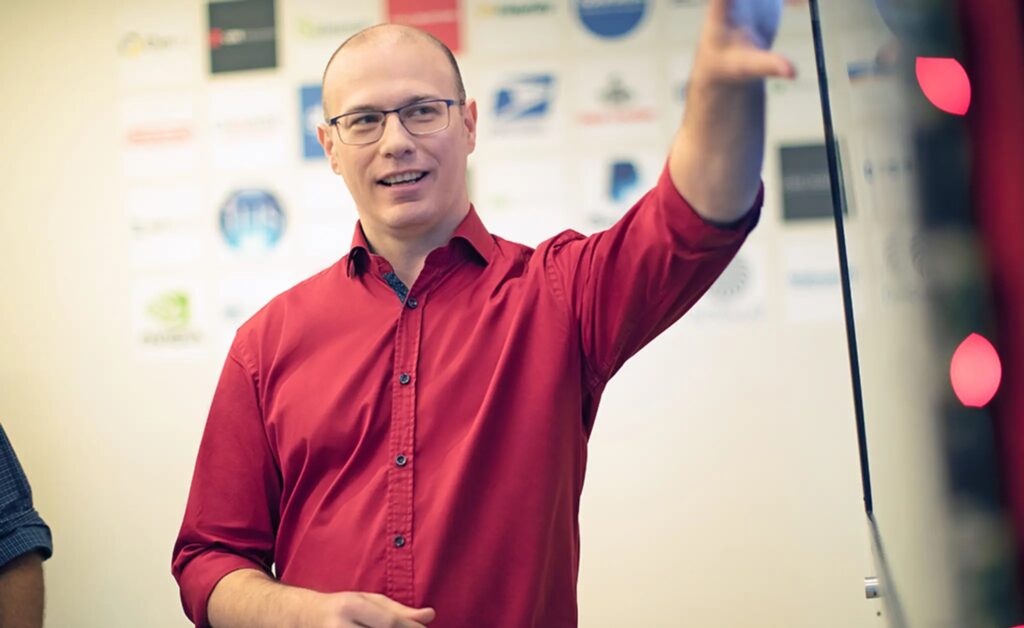
The festive holidays are upon us, when staff leave can easily become a nightmare at Christmas for a CTO unless they have prepared themselves and their company’s digital infrastructure properly.
Most of us are getting ready to put our feet up for some well-deserved rest. However, before settling down with some eggnog and Bing Crosby’s rendition of White Christmas, every CTO must ensure that their companies can keep running smoothly even with many key staff taking their annual holidays. This is not always easy.

Access deeper industry intelligence
Experience unmatched clarity with a single platform that combines unique data, AI, and human expertise.
Don’t worry though, we’ve got you covered. To find out how to avoid outages, missed opportunities and cyberattacks, Verdict reached out to our community of tech experts to get their top tips on what you as a CTO can do to prepare for the holidays. Read on and find out how a CTO can rest easily during the holidays.
Kris Beevers, CEO, NS1
An issue that has been top of mind lately is outages and no CTO wants their service to go down in the middle of the holidays, when schedules have been changed and staff may be away, particularly if this is their busiest time of the year.
2021 has been a year in which outages have made headlines repeatedly. In [December] AWS suffered an outage that restricted access to Amazon, and impacted Disney+ and Prime Video customers. While companies may not have time now to put in place new infrastructure resources and backups, what they can do is make sure network and application teams have the tools and leverage they need to quickly shift workloads to available resources in the event of an outage.
They can also adjust capacity thresholds and traffic policies to accommodate increased and less predictable application usage. It is also important to make sure monitoring and observability tools are appropriately calibrated and managed to quickly identify any issues that could impact users.

US Tariffs are shifting - will you react or anticipate?
Don’t let policy changes catch you off guard. Stay proactive with real-time data and expert analysis.
By GlobalDataPutting a little work in now to build resiliency into infrastructure will lessen the likelihood of downtime, cut the financial risk, and prevent having to bring in reluctant IT teams to get websites and applications up and running again.
Niki Trigoni, CTO and co-founder, Navenio
Thinking ahead and planning is key to keeping operations running smoothly during festive and holiday seasons. It should never be a shock. With customer demand remaining high, partnered with employee leave, CTOs must prepare to find a balance.
At Navenio, we work hard at balancing our service and tech strategy to align with customer demand and product updates, and this in turn helps us cope with pressures that occur during busier parts of the year. I would say that collaboration is key and therefore communicating to different teams what others can expect while key members are out is important is vital to meet demands and solve issues as and when they occur.
 Aaron Harris, CTO, Sage
Aaron Harris, CTO, Sage
The key is to plan ahead. Move management and communications tools to the cloud and leverage server-less and auto scaling services that don’t require hands-on operations support. Also, make sure you have clearly defined coverage schedules and escalations paths. The best organisations don’t need to do much different over holidays because they’ve built systems that don’t require constant supervision and attention.
Of course, a level of flexibility is required on both sides. At Sage, we operate a programme called Flexible Human Work. It’s a flexible way of working which means colleagues are empowered to work in a way that best suits their needs, the needs of their teams and the wider business – and that delivers the best possible outcomes for all stakeholders, including customers.
Flexible working is something most companies, regardless of size, have had to adopt during the pandemic. My guidance to SMBs is, where possible, to formalise that process. Build that flex into your day-to-day ways of working as that makes it a lot easier to operationalise during holiday periods as it’s just business as usual.
And although the customer is primary, in the busy holiday period it’s more important than ever to look after your staff. Now that teams are connected via phone apps like Slack, WhatsApp, and MS Teams, being able to respond to simple requests via these phone apps helps to keep things moving. One cautionary note: while it makes employees more productive, it is important to focus on their wellbeing so that colleagues don’t end up working the whole day.
Our research shows that SMBs are increasingly concerned about colleague wellbeing, with 41% of US businesses citing this as a priority. Our partnership with FlexEarn enables companies that use Sage Payroll to offer their staff the ability to withdraw a portion of their salary in advance of their regular salary payment date, helping them budget more easily and with less stress for a nominal fee. The holiday period can cause additional money worries, so companies that are able to show their colleagues they are genuinely committed to supporting their financial wellbeing – which plays such an important part of their overall wellbeing – usually garner greater engagement and long-term loyalty.”
Nigel Kersten, Field CTO, Puppet
This time just before the end of the calendar year isn’t really one where it makes sense to institute large scale changes in terms of IT operations, but in the spirit of the season, it’s a great time to take stock of where you are, pay attention to how your teams operate while less than fully staffed, and start planning improvements for the new year.
Compare and contrast your legacy environments with your most modern deployments. Are the newer services continuing to make progress while your older ones have slowed to a crawl, or even stopped completely? This is often due to a higher degree of autonomy, with more streamlined processes that cross fewer organisational boundaries, as newer services (particularly those making use of modern public cloud or cloud-native capabilities) often get to bypass much of the bureaucratic scar tissue that’s built up in your legacy environments over time. This doesn’t mean you need to rebuild all of your legacy systems to gain these benefits, sometimes judicious process simplification and increased team autonomy can have a massive impact.
As we’ve seen with the recent log4shell vulnerability, there’s unfortunately no change freeze for external factors that require an immediate response during the holiday season, and it can be easy during these times to forget to conduct retrospectives and capture information for future improvements. How do your teams and processes cope when short-staffed? Are there key individuals required for critical tasks, or do you have a sufficiently resilient organisation? Are teams able to respond more quickly with fewer people involved? Does appropriate communication still occur? Were there process shortcuts taken that could be made permanent?
 Jonathan Ellis, CTO, DataStax
Jonathan Ellis, CTO, DataStax
The 2020 holiday season saw companies like Zaya, Adidas, and more face lost revenues (and longer term customer loyalty issues) arising from outages and website issues. Deloitte projects that ecommerce sales will be 11% to 15% higher this year, so the stakes are going up.
CTOs and their teams need to look at their infrastructure and how it can provide availability and reliability as a default, rather than a failure-prone add-on. Anything related to the realtime customer experience – starting with orders and fraud detection and fulfilment, but also personalized offers, recommendations and loyalty points – needs to be up and running 24×7 for customers everywhere.
One silver lining of the pandemic is how it has highlighted that a lot of jobs can be done from anywhere in the world. I’m a huge cheerleader for distributed teams so I think this is great, both for existing employees achieving a higher quality of life, and also for hiring talented team members in other countries. But sometimes American engineering leaders can be surprised by the fine print this involves. For example, the French labour code says (I’m simplifying a little) that if you work more than 35 hours a week you need to be compensated with additional time off before the end of the year. This can throw a wrench into on-call schedules if not planned for!










